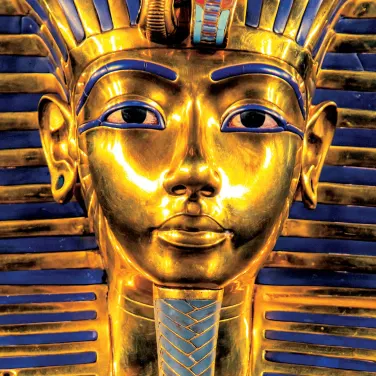
About
No info to show.
Frequently Asked Questions
- Where will King Tut exhibit be in 2025?
- The "Discovering King Tut's Tomb" exhibit is renowned for its immersive experience, transporting visitors back to the moment of one of the greatest archaeological discoveries in history. In 2025, the exhibit is set to tour major cities across the United States and internationally, with confirmed stops in cultural hubs such as Chicago, New York, and London. The exhibit may also return to popular venues like the Luxor in Las Vegas or the Biltmore Estate in Asheville, North Carolina. For the most up-to-date information on locations and ticket availability, visit Gigfomo or the exhibit's official website. These exhibitions typically feature meticulously crafted replicas of King Tutankhamun's treasures, multimedia presentations, and interactive displays that bring the ancient Egyptian world to life. Whether you're an art enthusiast, history buff, or simply curious about the mysteries of Ancient Egypt, "Discovering King Tut's Tomb" promises an unforgettable journey in 2025.
- What is the movie about finding King Tut's tomb?
- The movie about finding King Tut's tomb tells the gripping true story of one of archaeology's most significant discoveries. Several films and documentaries have explored this moment, but the most notable is "The Curse of King Tut's Tomb" (2006), which dramatizes the events surrounding Howard Carter's 1922 discovery of the tomb of the young Pharaoh Tutankhamun in Egypt's Valley of the Kings. The film blends historical fact with elements of adventure and mystery, highlighting the partnership between Carter and his patron, Lord Carnarvon, their relentless search, and the legendary "curse" that supposedly befell those who entered the tomb. Additionally, there are acclaimed documentaries such as "Secrets of King Tut's Tomb" (National Geographic) and "Tutankhamun: The Truth Uncovered" (BBC), which provide factual accounts, expert interviews, and stunning visuals of the tomb's treasures. These films capture the excitement, challenges, and lasting legacy of the discovery that captivated the world.
- How long is the King Tut exhibit in Las Vegas?
- The King Tut exhibit in Las Vegas, often hosted at the Luxor Hotel & Casino, is typically a long-running attraction, allowing visitors ample opportunity to experience the wonders of Ancient Egypt. While the exact duration can vary depending on demand and schedule, the "Discovering King Tut's Tomb" exhibit commonly operates for several months, sometimes even running for a year or more. For example, recent installations have opened for extended periods, often from spring through late fall, to accommodate both tourists and locals. It's advisable to check Gigfomo or the Luxor's official website for the most current dates, as the exhibit's run may be extended due to popularity. The exhibit includes detailed replicas of King Tutankhamun's treasures, immersive multimedia displays, and educational experiences suitable for all ages, making it a must-see event for art lovers and history enthusiasts visiting Las Vegas.
- Is the King Tut exhibit at Biltmore real?
- The King Tut exhibit at Biltmore Estate in Asheville, North Carolina, features high-quality, meticulously crafted replicas of the treasures found in Tutankhamun's tomb, rather than the original artifacts themselves. The "Discovering King Tut's Tomb" experience is designed to authentically recreate the tomb's discovery, offering visitors a chance to explore the wonders of ancient Egypt through state-of-the-art multimedia displays and lifelike reproductions. While the exhibit is not comprised of genuine artifacts
- What happened to the guy who found King Tut's tomb?
- The man who found King Tut's tomb was British archaeologist Howard Carter. In 1922, Carter, backed by his patron Lord Carnarvon, made the historic discovery of the tomb of Tutankhamun in Egypt's Valley of the Kings. The find was celebrated worldwide for its incredible array of untouched treasures and the insight it provided into ancient Egyptian civilization. However, following the discovery, rumors spread about a "curse" linked to the tomb, largely because Lord Carnarvon died from an infected mosquito bite shortly after entering the tomb. Howard Carter himself, however, lived for another 17 years, continuing his work in Egyptology and publishing detailed accounts of the discovery. Carter died of lymphoma in 1939 at the age of 64. He is remembered as one of history's most significant archaeologists, his legacy forever tied to the dazzling treasures of King Tutankhamun's tomb and the enduring fascination they inspire.